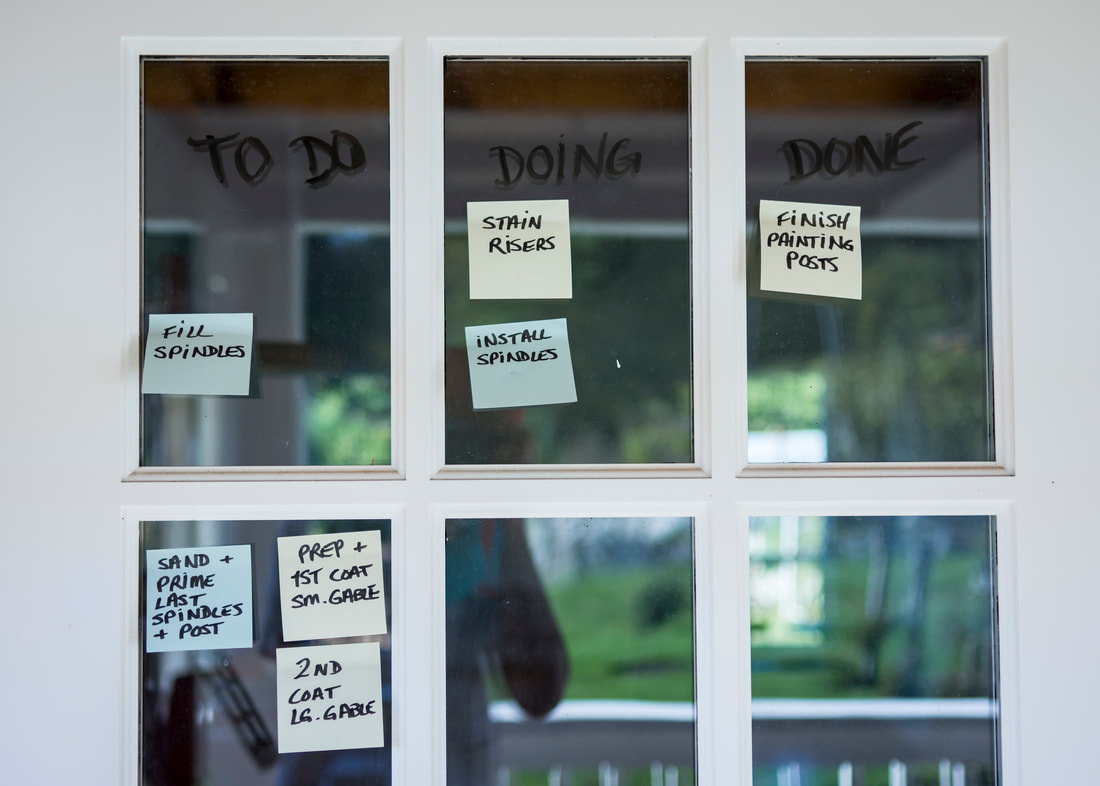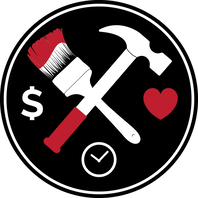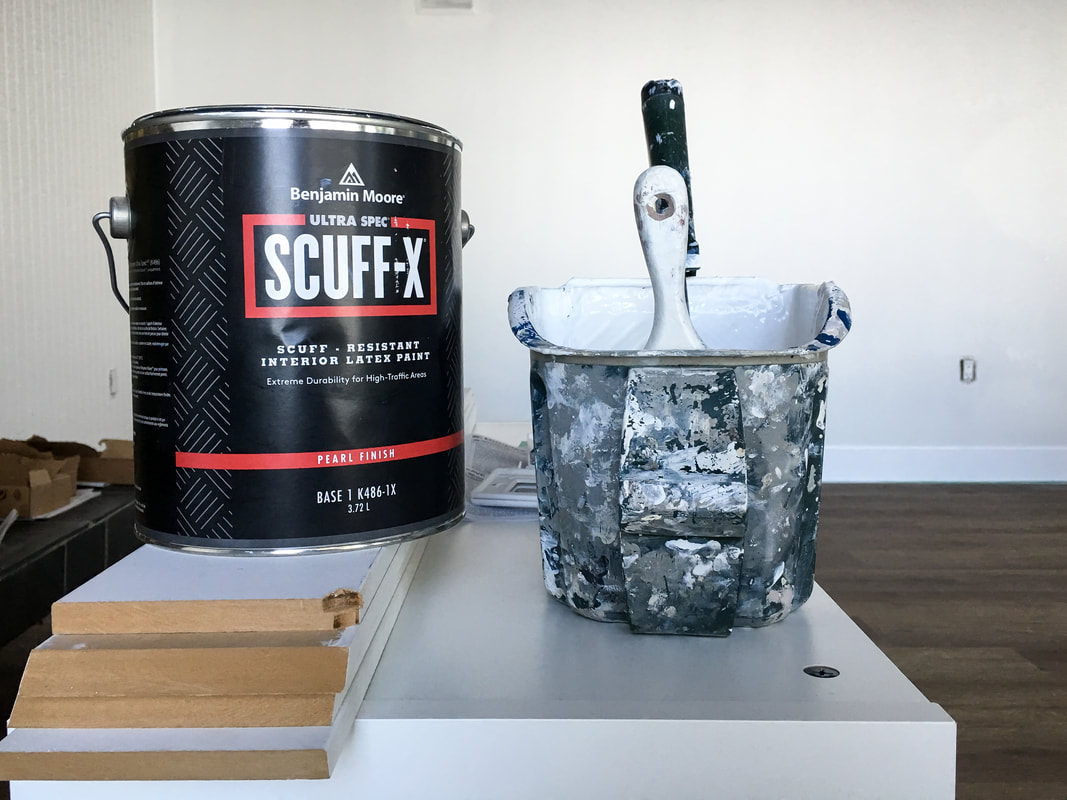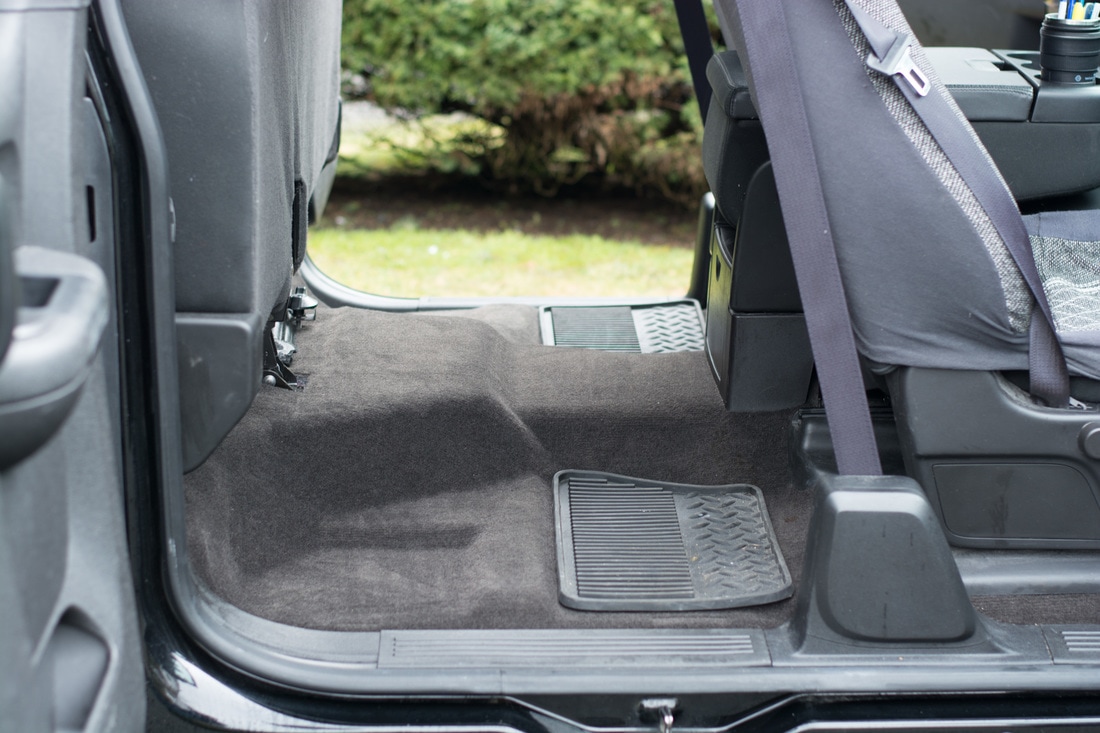|
I've been reading a lot lately about starting where you are. Working with your current reality.
If you have been running a painting business for a while and are looking for new opportunities, where should we first look? Sometimes we need a change. 'A change is as good as a rest', goes the saying. Perhaps our personality thrives on novelty and challenge. Maybe we are stuck in a rut. Or, our circumstances demand that we force a change. Change can be stressful. Tim Ferris nicely summarized our intrinsic fear of change - 'most people choose unhappiness over uncertainty'. So what is one effective way to incorporate changes while working with what we currently have?
0 Comments
One the final key pieces that I changed in my business when I attempted to overhaul the way money worked in my painting business was changing to weekly invoicing.
In the past I would take a large deposit - 25 to 50%, a progress payment on large projects, and final draw upon completion. I operated that way for 12 years or so. As mentioned in part one, the large deposit carries risk for both the homeowner and myself as the business owner. The large span between deposit and final payment also caused stress on cash flow because I often have little control on the project. There were times where general contractors would botch the scheduling or change specs and there went my profit. Other times homeowners would take 12 months to complete the other trades prior to me returning for final coat. Even with a 50% deposit, most of that goes to paint and materials, other job costs like fuel, business operating expenses and a little bit of labour. So I quickly found myself upside down on projects and that could last several months sometimes. Not ideal... I love this paint. It's the best interior water based paint I've ever used for trim and doors. It is worth the price and performs beautifully both during application and as a finished coating. It is pretty much all I ever use now for interior trim packages. That is my conclusion after 18 months of using this product regularly.
Here is what I like about it specifically... It was a strange feeling.
Friday at 2:00 pm and I was clean, sitting quietly paying attention to a speaker, surrounded by business people from diverse fields. Last week I took an afternoon off of the tools and spent about 5 hours at an event hosted by our local Chamber of Commerce. It featured networking opportunities, a trade show, panel discussions geared toward small business owners, talks about the local economy and some presentations to help business people to deal successfully with the many challenges they face. It was difficult investing the time and money to attend an event that had no clear ROI. But I'm enjoying getting out of my comfort zone this year and I figures that just meeting one person, or learning and implementing one thing, could make the investment very worthwhile in the long run. I had to create some space in my regular routine for this event. And it turned out my biggest take away from the day has to do with space...  It's been a while since I wrote a post on this blog. I've just needed a break from the blog while I focused on other things for a while. If you've stuck around, thank you very much for your patience :) The last couple of years have been full of challenges and there is always so much to do. The over-whelm gets to me sometimes as I struggle to tread water. Just the other day as I was commuting to work it occurred to me...am I so conditioned to work and life being difficult, that I have just accepted that it has to be that way? I know it isn't constantly hard for everyone. I work for a lot of people that have a pretty sweet life. But I also know that adversity finds everyone sooner or later, in one way or another. There is no escaping it. Maybe some of us get extra practice. Anyway, this is not a woe-is-me article. My life is pretty good overall, I know that, and I have much to be grateful for. But I'm always looking for ways to make my life easier and it usually involves some type of simplification. Simplicity is often the answer when nothing else seems to be working. Back to basics! Just finished reading the book Born For This by one of my favourite authors, Chris Guillebeau. It is a good read and I may do a review sometime. But I wanted to share one simple and effective tool that I learned from this book that I've been able to use with success when it comes to managing multiple tasks on a given project... SIMPLE > COMPLEX
TIME > MONEY VALUE > COST HEALTH > WEALTH FAMILY > ENTERPRISE PEOPLE > THINGS FOCUS > BALANCE STARTING > PERFECTING FINISHING > STARTING CHARACTER > EXPERIENCE LIFE > RESUMÉ TESTIMONIALS > PROMOTIONS GIVING > GETTING APPRECIATION > EXPECTATION CHOICES > LUCK There is an ancient book that many today see as merely allegorical, while others may consider it out of date. But I have found that the Bible contains business principles that are very simple to understand, practical today, and that add value to my work. Here are a few principles that have helped me confront the challenges of self employment and build a business that stands out a bit from the competition...
On this rainy West Coast Sunday morning I'm thinking about how many contractors I have personally talked to over the years that have told me that they grew their business to sometimes 2 or 3 dozen people, only to hit a major crisis (health, family, bankruptcy, lawsuit, etc) and decide to scale back, way back, to just themselves and a helper. Like a cool Sunday morning rain, running a small business is just more laid-back. Small is low risk. Small is low stress. Small is manageable. Small is profitable. Small is freedom... So a few years back I was paying for my paint when my friend and colleague Mike walked in.
And that's when it hit me. At the time I was busy and had a closing rate of about 1/3 of my estimates. But taking one look at my friend, I realized that if I was a customer, I would hire Mike, not me. Why?... How do you know when it is time to make a change?
There is a theory that says people generally do not change until the pain of the status quo is greater than the pain of change. “Change happens when the pain of staying the same is greater than the pain of change.” - Tony Robins That is why we hear people say things like: 'getting fired was the best thing that ever happened to me'. They likely hated their job, were to afraid to leave a stable paycheque, but since the decision was made for them they were then free to move in a direction of their choosing. We change. What made us happy and brought us satisfaction at 20, becomes different at 30, or 50. So how do you know when it is the right time to make a move if you are unhappy about an aspect of your life? Do you have to wait for someone else to make the decision for you? Do you have to wait until you just can't take it anymore and you have a breakdown? When to initiate change is something I have struggled with over the years... In an earlier post, I discussed the importance of Respecting Capacity.
But I've come to appreciate another facet of capacity that relates to our business - viewing capacity as an asset in your business and leveraging it for maximum profit. Used to be that I got nervous if I was booked up for less than 3 weeks in advance. I was used to being booked 6 - 12 weeks out and that demand felt good, felt secure. But these days... The idea for this list came from a list Chase Jarvis made for Creatives, which was a variation of a list Guy Kawasaki made titled What I Learned From Steve Jobs.
Here is what I believe when it comes to running a small painting business: 1. There is no substitute for craftsmanship. Be wary of jobs where craftsmanship is not valued. Quality work should be non-negotiable. 2. Work begets work. Not busy enough? Get out there and add value somehow. The easiest way to find work is to be busy working. Too busy doing jobs you hate for people you don't like? Stop doing that, otherwise you will get more of it. 3. Profit is a proportional bi-product of the value you create. ‘FOLLOW YOUR PASSION’ '
FIND YOUR PURPOSE' ‘DO WHAT YOU LOVE’ These have become the de-facto career advice you hear these days. It’s as if we all need to be doing something incredibly inspiring and challenging in order to feel time spent at work is worthwhile. Does work need to be a spiritual, higher-calling endeavour to be satisfying? Oscar Wilde is quoted as saying, ‘Everything popular is wrong’. Could today's popular career advice be wrong? When we started our small contracting business, time is something that we invested heavily. Funds and experience and equipment may have been minimal, but time is something we all get an equal allotment of. If working for ourself is a priority, we will spend as much time as needed to get it off the ground.
The danger is that we stay stuck in departure mode. Imagine being on a long journey aboard a jetliner that was in lift-off mode for the entire 12 hour trans-atlantic flight. How stressful! Take off is exciting, but everyone's happy to sit back, take a deep breath and order a drink once everything is under control... As entrepreneurs we must be effective problem solvers. Problems come in all variations: financial, health, technical, scheduling, staffing, etc. One type of problem that we will eventually encounter is people problems.
People problems can be particularly difficult to handle if you have an aversion to confict. Many people would rather experience just about anything but having to confront someone about a problem. I know, I used to be one of those people, and I still have to fight that tendancy. And that is a benefit of the road we travel as business people...it exposes our weaknesses and provides opportunity to confront them one way or another before you can achieve success. Learning to deal with people problems is one of the biggest hurdles facing a start-up. We all want to be liked and we all hope to get along with others, but things can go pear-shaped pretty quickly when mixing money, deadlines, personalities and expectations. So here are 4 things I have found that help to difuse potential hot spots... If each party in a transaction over-delivered by 5%, what room would be left for disagreement?...
Over the years I've noticed that there are 3 quick, free and easy things that most experienced painters refuse to do that holds their quality back from producing professional results:
1. Caulk with a wet finger or rag, prior to painting. This reduces drag, leaving a smoother finish on the bead of caulk. It also prevents building texture with drag lines and tiny chunks of semi-dry caulk. The caulking deficiencies only look worse once painted, so proper application will give a better paint finish. Caulking applied after the painting is done will eventually collect dust, discolour and look unprofessional in a short time. Caulking requires top-coating with paint... Storage of equipment in work vehicles has been an almost constant irritation of mine since I started working for myself 13 years ago.
Over the years I've worked out of old beater trucks (large and small), an SUV, a cargo trailer, new trucks (large and small), an old van, and even commuted out to one job in the country on my scooter one summer. I've noticed that with my (and many colleagues) extended cab work trucks, the back seat area is usually full of equipment. Some tools and materials need to be protected from the rain, snow or thieves. It almost always ends up a mess, unstable and impractical, because the floor is uneven. Well one day a couple of months back I had enough and pulled into the hardware store and built myself a simple set up that has worked much better... You might be thinking about taxes at this time of year. And that maybe causing you some stress.
Or you may be feeling taxed by the stress of a busy painting season just ahead. I've been thinking about work stress recently, particularly about the toxicity of stress and the toll it takes on our health, relationships and general job satisfaction. Stress is real. The effects of stress can be as simple as being more irritable to more complicated - like the inability to sleep properly, addictions, memory loss, a compromised immune system. Stress can even lead to heart attacks and death. My observation is that some of us don't consider stress enough when looking at jobs. For me, I need to be more intentional about limiting it's influence in my work life where possible. We are just painters after all, not surgeons, so why all the stress? Is it necessary? What factors lead to some projects being more stressful than others? Governments tax behaviours that they deem unhealthy for individuals or society, to reduce consumption/exposure and raise money to finance the side effects. So...why not tax stress in your life, particularly in your business? Add a surcharge to jobs that involve more stress, put a premium on that stress to discourage and reduce the amount of stress and raise money to deal with the consequences of stress (vacation, massage, therapy, date nights, exercise, healthy food, etc...). With that in mind I created a Project Stress Analyzer and Tax Calculator. I fill it out as part of the process for every project I quote in 2017. In fact, I print a bunch of these sheets and use the back side to make my notes during the site visit. If a project has an average (or lower) anticipated amount of stress there is no premium tacked on. But for every degree of stress above average I add 2% to the quote, to a maximum of a 100% stress premium... So one day about 8 years ago I went to a client's summer home to continue an exterior painting project. It was mid morning and the homeowner meets me at the front door with a serious look on her face and a glass of wine in her hand.
"Simon," she says, as she pulls me inside her house by the arm, "today you won't be doing any painting." Uh, OK...?... This article is a guest post by Steve Maxwell, one of Canada's most read home improvement journalists and editor of Pro Painter magazine. Pro Painter has been an excellent source of support to my business over the years with technical tips, business advice and industry trends. Look for a re-vamped Pro Painter debuting in 2017.
Every painter wants a schedule full of great jobs, serving clients who appreciate good work and pay good money. But whether or not you actually get this kind of work depends on more than just your skill with a brush, a roller and your estimating book. All these things are critical, but success in painting, as in life, ultimately depends on deeper qualities like energy, honesty, selflessness and humility. Please forgive me if this sounds like a Sunday school lesson, but reality backs me up. A painter I know named Gary Walchuk reminds me how true it all is... With a new year just around the corner, you as a business owner may be thinking about your sales numbers - what they were like this year compared to last year, what next year should look like, etc.
Like the economy, everyone assumes that a healthy business is a growing business. Progress and increase are quick validation that we are working hard and things are going well. If you are not growing you are shrinking, contracting, losing market share, in a recession...all negative sounding things we have been conditioned to have an aversion to. Let's assume for the sake of this blog post that growth is good, necessary even, for your micro-business. We want to measure our efforts and see fine results: higher sales, and more importantly - higher profit... At this time of the year many people begin thinking about what goals they may want to set for the coming year. I've always appreciated the importance of having goals, but have always struggled with the achieving of them. Here are a few things I have learned about goals over the years, as I have begun to use them as an important tool in feeling like I'm moving forward in my life...
When painting a room I find that having a system leads to the most efficient and consistent results.
One simple part of my system is working left from the entrance into the room and proceeding from left to right, top to bottom. This way nothing gets missed and no time wasted deciding where to start. Another part of my system is to... I just watched a few really interesting talks that contained some good take-aways for me and my business...thought I'd share the links in case you might be interested in some positive psychology...
|
Categories
All
Archives
March 2021
|


